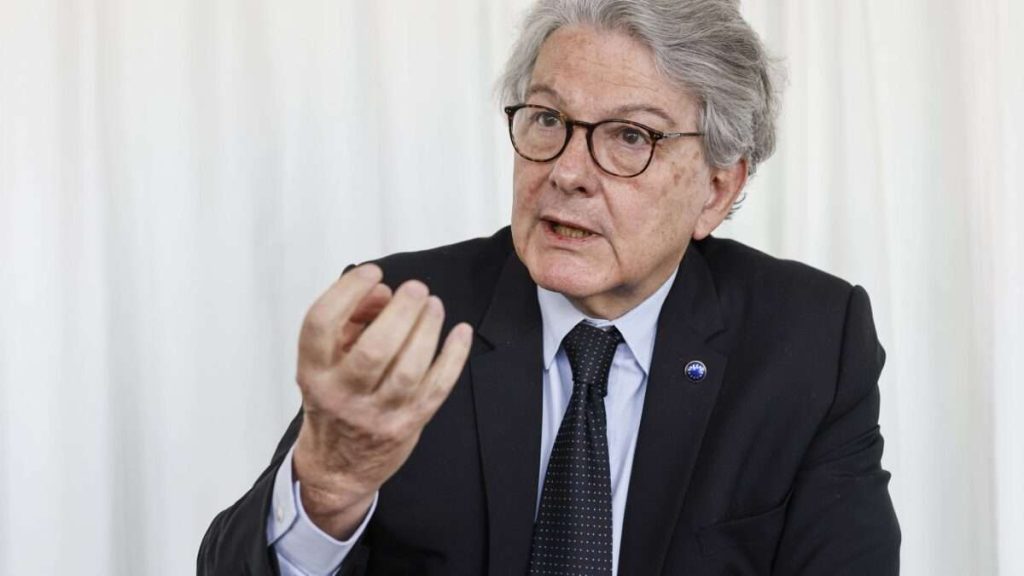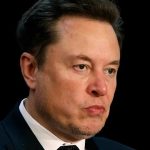Earlier this month, European Union Internal Market Commissioner Thierry Breton raised eyebrows when he publicly warned Elon Musk to respect the E.U.’s censorship laws during a then-pending interview with U.S. presidential candidate Donald Trump. Even for the E.U., which has been slipping not-so-slowly towards soft totalitarianism, the attempt to extend E.U. jurisdiction to North America was a high water mark for presumption. Now a coalition of civil libertarians is calling Breton out for his disregard for freedom of speech.
The EU Can Censor It if Europeans Might See It?
“I am writing to you in the context of recent events in the United Kingdom and in relation to the planned broadcast on your platform X of a live conversation between a US presidential candidate and yourself, which will also be accessible to users in the EU,” Breton wrote to Musk August 12 in a letter made available on X. The letter warned of the requirements of European law including the Digital Services Act (DSA), especially regarding broadly defined “harmful content,” as well as pointing out that X is already undergoing proceedings over what officials in Brussels consider “illegal content” and “disinformation.”
“As the relevant content is accessible to EU users and being amplified also in our jurisdiction, we cannot exclude potential spillovers in the EU,” Breton continued. “Therefore, we are monitoring the potential risks in the EU associated with the dissemination of content that may incite violence, hate, and racism in conjunction with major political—or societal—events around the world, including debates and interviews in the context of elections.”
The letter also invoked concerns about the effects of X content on rioting in the United Kingdom—which is another country not part of the E.U. (though it has its own creeping censorship regime). It was, quite explicitly, an attempt to extend the European Union’s increasingly restrictive speech controls past its borders using the excuse that, in the digital age, content legal elsewhere, but not in the E.U., might catch the attention of a resident of that unfortunate quasi-super-state. That bothered more than a few people.
You Can’t Censor the World
“We are particularly concerned by your attempt to use the DSA to stifle freedom of expression beyond the European Union because of what you call ‘spillovers,'” a coalition of organizations and individuals responded to Breton this week. “Warning an online platform that streaming an interview with one of the two key candidates in the United States presidential election may be incompatible with an online safety law is more characteristic of an autocratic nation than a democracy.”
While Breton inserted a few platitudes in his threatening missive to Musk about “freedom of expression and of information,” the civil libertarians weren’t impressed. They dismissed his “abstract references to ensuring freedom of expression” as “not sufficient to guarantee freedom of expression” and cautioned that his “loose paraphrase of the carefully crafted language of the DSA risks casting a long shadow upon free expression and exceeding the authority given to you.”
The letter was signed by The Future of Free Speech, TechFreedom, Insitute H21, The Copia Institute, Justitia, Adam Smith Institute, Center for Political Studies, Istituto Bruno Leoni, and individuals including former ACLU President Nadine Strossen. The signers are based in the European Union, the U.K., and the U.S., reflecting shared concerns by people already under the rule of Brussels, and those over whom the E.U. seeks to extend its reach. The inclusion of European organizations is important, since they may get a hearing from national governments and E.U. parliamentarians who have some say in Brussels.
Europe’s Far Reach
This isn’t the first time we’ve seen European control-freakery slip its leash and extend across the EU’s borders. The continent’s ambivalent attitude towards free expression has increasingly affected online conversations as platforms that operate globally adopt rules intended to satisfy the most-restrictive major jurisdiction—almost always the E.U. These rules are then applied to everybody, since it’s easier to do so than to create virtual borders with different regulations for the residents of countries with greater and lesser degrees of freedom.
“The Brussels Effect refers to the EU’s unilateral power to regulate global markets,” Columbia University Law School’s Anu Bradford, an authority on the issue, wrote in 2019. “The EU does not need to impose its standards coercively on anyone—market forces alone are often sufficient to convert the EU standard into the global standard as multinational companies voluntarily extend the EU rule to govern their global operations.”
Censorship isn’t the only European regulatory preference exported by the Brussels Effect. The E.U.’s tendency to intrusive regulation hobbled Microsoft’s ability to secure its software, worsening the impact of the recent CrowdStrike software update fiasco.
“As the issue with CrowdStrike shows, the impact of European regulation is no longer isolated to just Europe,” the Cato Institute’s Jennifer Huddleston wrote earlier this month. “As with many regulatory compliance requirements, it may not be technologically or economically feasible to simply offer a different product in Europe.”
Of course, Breton wasn’t just relying on the E.U.’s market clout. He openly demanded that Musk apply European speech restrictions to a conversation with a former, and possibly future, president of the United States. He insisted “DSA obligations apply without exceptions or discrimination to the moderation of the whole user community and content of X (including yourself as a user with over 190 million followers) which is accessible to EU users.”
Pushback, Principled and Profane
Telling a U.S. citizen based in Texas that his social media posts are subject to European content rules may have been a step too far even for Breton’s E.U. colleagues. European Commission spokesperson Ariana Podesta insisted Breton acted on his own, without consulting other officials. Politico reported that Breton’s “own staff were back-pedaling hard.”
For his part, Musk responded to Breton with a pithy meme from Tropic Thunder. It urged: “Take a big step back and literally, fuck your own face!“
That’s a sentiment E.U. busybodies should take to heart every bit as much as they should the free-speech coalition’s demand that “the European Commission and national authorities should ensure that the DSA is not applied in a way that harms freedom of expression not only in Europe but globally.”
In terms both principled and profane, the control freaks of the world should be told to get lost.
The post Free Speech Coalition Slaps Censorious E.U. Commissioner Who Threatened Elon Musk appeared first on Reason.com.






